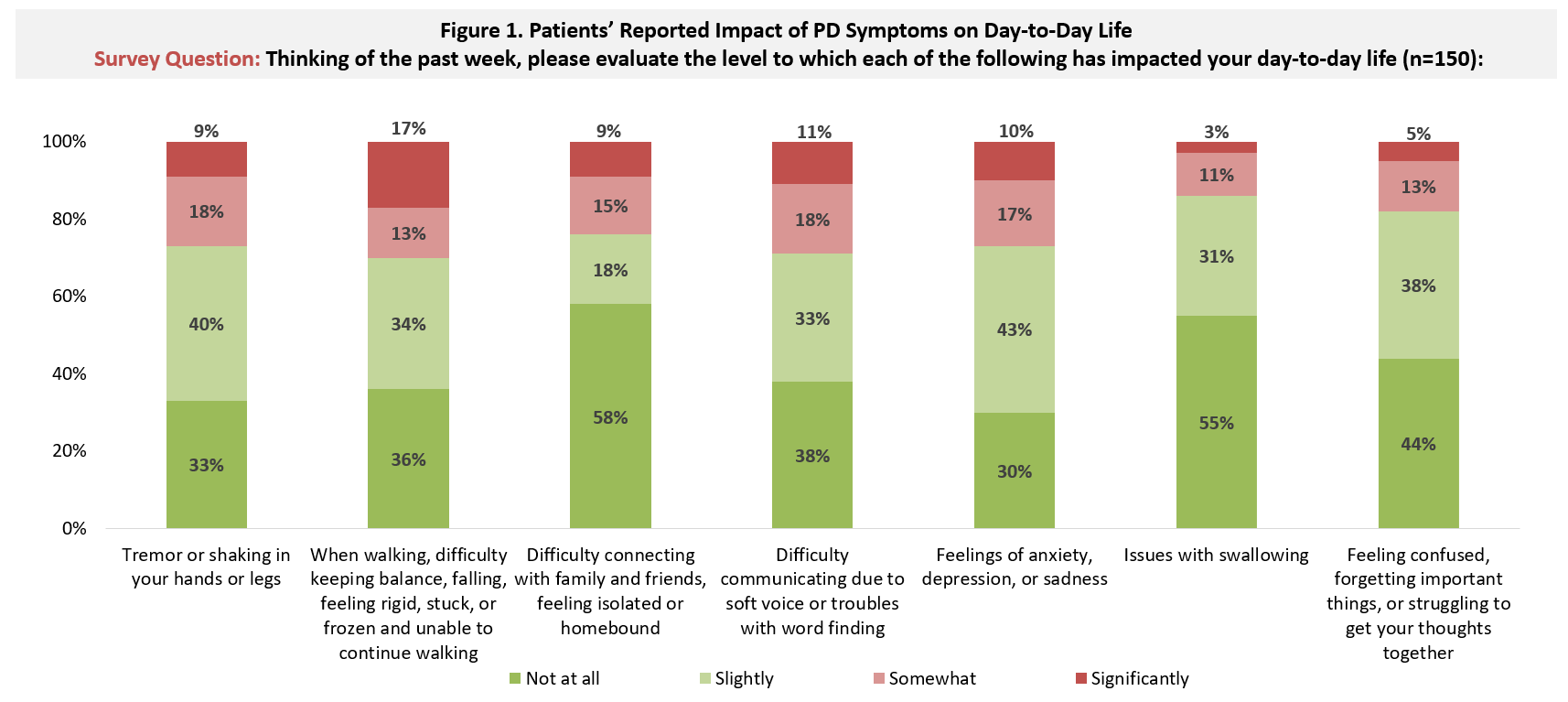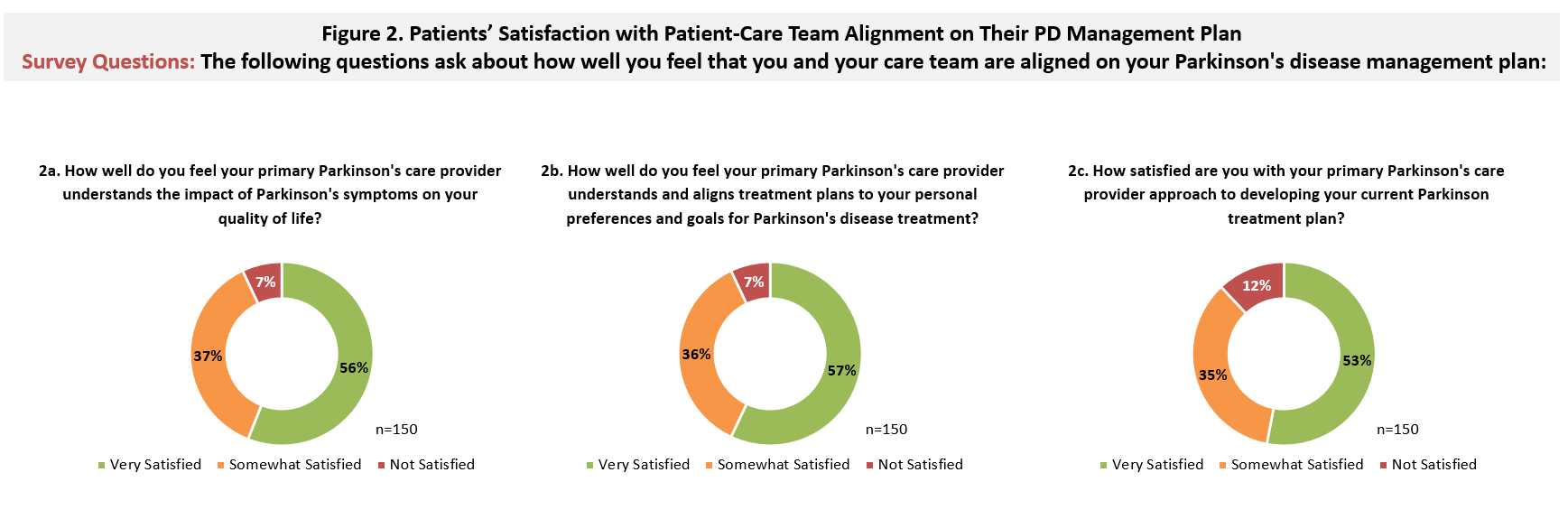Objective: To gather patient insights on the burden of Parkinson’s disease (PD), understand the level of patient involvement in treatment decision-making, and determine overall satisfaction of care.
Background: Despite an evolving landscape of therapeutic options for PD, patients experience an array of symptoms that significantly impact their daily activities and quality of life (QoL). Understanding patients’ experiences and perceptions of treatment decision-making and management is vital to maximizing outcomes and delivering personalized PD care.
Method: Survey questions assessing patients’ PD symptoms and involvement in care were collected in collaboration with a PD patient advocacy group between June and July 2023 (n=150). Results were shared with providers through a national webinar (n=466), and providers were asked which improvements in care they plan to prioritize.
Results: Patients surveyed were primarily Caucasian (94%), women (62%), had a mean age of 64 years, and on average had PD for 7 years (range 0-24). The most common symptoms that patients reported impact their day-to-day life ‘somewhat’ or ‘significantly’ were gait issues (30%), difficulty communicating (29%), tremor (27%) and feelings of anxiety, depression, or sadness (27%) (Figure 1). Patients identified wearing off as the most bothersome medication-related issue. Despite most patients reporting significant challenges with symptoms, only 56% of patients felt very satisfied that their provider understood the impact PD symptoms had on their QoL (Figure 2a). In addition, while most patients indicated they always felt involved in their treatment decisions (83%), only 57% felt very satisfied with treatment plans aligning with their personal preferences and only 53% felt very satisfied about the current approach to their treatment plan (Figure 2b,2c). Patients desired more time to discuss medication options (55%) and their goals and preferences for treatment (33%). Following the presentation, providers prioritized improvements in care that included incorporating patient factors and preferences into management and staying up to date on treatment approaches.
Conclusion: These survey results highlight the challenges and disease burden faced by patients in the context of available PD therapies. While most feel involved in treatment decisions, shared decision-making and other patient-centric practices have the potential to yield improvements in PD care.
Figure 1
Figure 2
To cite this abstract in AMA style:
A. Di Rocco, M. Armstrong, J. Carter, C. Chadha, K. Olson, L. Simone, L. Jarzylo. Uncovering Patient Perspectives on Parkinson’s Disease to Inform Individualized Care [abstract]. Mov Disord. 2024; 39 (suppl 1). https://www.mdsabstracts.org/abstract/uncovering-patient-perspectives-on-parkinsons-disease-to-inform-individualized-care/. Accessed July 18, 2025.« Back to 2024 International Congress
MDS Abstracts - https://www.mdsabstracts.org/abstract/uncovering-patient-perspectives-on-parkinsons-disease-to-inform-individualized-care/


